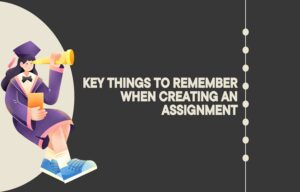Things to Know Before You Pay Someone to Do Your Online Class

Online study sounds simple. Open your laptop, watch lectures, submit work, repeat. In real life, it’s messy. Shifts run late. Family needs you. Deadlines stack up. A tough subject like accounting or stats won’t click. Sleep gets short and stress gets loud. That’s when the thought appears in students, and they put up online queries asking, can I pay someone to do my online class. Well, you’re not the first to think it. Many students around the world reach that point each term. Before you move further, pause. There are rules, real risks, and better options. If you understand those, you can protect your grade and your future. This guide keeps the language simple and the steps clear.
Why Students Think About Paying for Help?
Life gets heavy, and most of the students who ask for help aren’t lazy, but they’re overloaded. Common pressure points that leads them to think about paying someone to for help is as follow:
- Work + study clash- You juggle shifts, commute, and coursework.
- Tough units- Accounting, calculus, finance, programming, nursing—high detail, zero slack.
- Family duties- Childcare, elder care, or running the household.
- Health and burnout- Anxiety, low sleep, or recovery after illness
- Distance learning gaps- No in-person class rhythm; easy to fall behind.
Things to Know Before You Pay Someone to Do Your Online Class
There are many students who get stuck with online classes and reach out to experts by asking, can I pay someone to do my online class. But before you hire someone, you need to know the following things.
Know Your School’s Policy First
Don’t guess. Read the rules. You’ll usually find them under “Academic Integrity” or “Assessment” on your school site.
- Tutoring and feedback are okay, someone doing the task is not.
- Take-home vs. timed vs. proctored have different rules.
- Collaboration is allowed only in set ways.
Protect Your Identity and Data
Even if you only seek tutoring, keep your accounts safe.
- Never share main logins. Use guest links for meetings, don’t hand over LMS credentials.
- Avoid DMs with strangers. Use trusted platforms that mask contact details.
- No upfront full payments. Use staged payments divided into 2 or 3 sets.
- Keep personal info minimal. No passport, visa, or full address for “verification.”
Quality Is Not Guaranteed
Paying doesn’t promise good work. Common issues are as follows:
- A sudden jump in quality triggers suspicion.
- Generic text that fails originality checks.
- Missing rubric parts, wrong citation style, or weak references.
- Missed deadlines cause automatic grade drops.
- If you use an expert, keep your voice in the final work.
Think Long-Term, Not Just This Week
Shortcuts today can cost you later.
- The next unit builds on this one. If you skip learning now, the next subject hits harder.
- Placements and licensing are important. Nursing, education, and engineering need real competence.
- In job interviews, you may be asked to discuss “your” project in detail.
- Finishing hard tasks yourself builds skills and calm.
How to Choose the Right Kind of Help
You want help that teaches you and keeps you safe. Many scammers can commit fraud. Always choose wisely and make a smart decision. Once you put an online query asking experts, can I pay someone to do my online class. After that, once an expert reaches you, try and know every detail so that you make the right choice.
- Transparent scope- They explain and review drafts, and they don’t submit for you.
- Subject expertise- Real degrees or verified experience in your course area.
- Clear policies- On privacy, refunds, deadlines, and plagiarism.
- Sample support- Outlines, feedback snippets, or solved examples (not recycled essays).
Here are a few red flags you should always check for:
- Guaranteed A+ or minimum B Grade.
- They log in for you in the classes on time.
- No company details, no reviews, pressure to pay now.
- No hidden charges.
Steps to Follow If You’re Overwhelmed
There are times when students feel so overwhelmed. There are multiple subjects that students struggle with, especially math’s and algebra. They put up online queries asking,pay someone to take my online math class. Experts reach out to students and handle their academic load. They help a lot for students to take off their burden. Here are a few steps that you can follow if you feel overburdened with academic load.
- Map the next 14 days. List every due date, grade weight, and time needed.
- Pick the top three tasks. The highest weight plus the earliest due date is equal to the first.
- Book office hours. Ask, What’s the fastest path to 70% on this task?
- Get a tutor for gaps. One-hour session on one pain point (e.g., cash-flow statement, hypothesis tests).
- Draft ugly, then tidy. Write a rough version, then fix structure and references.
- Submit with time to spare.Upload a day early to avoid tech issues.
Why Many Students Still Choose Experts
Let’s name it. Students seek experts for the following reasons mentioned below:
- Time is tight- Work shifts, family, and long commutes eat hours.
- Some units are brutal- Accounting, statistics, and programming can snowball fast.
- Confidence dips- After one bad mark, fear grows.
- Mental load is heavy- A little guidance lowers stress and resets momentum.
- They want structure- A tutor gives a plan and holds you to it.
Pick the help that teaches you how to fish, not the kind that hands in a fish with your name on it.
How Tutors Can Lift Your Grade
Good tutors don’t “do it for you.” They make you effective. They help you understand the concept by breaking down the topic for you. They not only take your class but also make notes and help you throughout. Here is what tutors do to improve your grades.
- Target the core- They show what the rubric really rewards.
- Model one example- You watch the method, then try the next one.
- Fix the draft- They suggest structure, sources, and clearer claims.
- Build a study loop- Short, regular sessions beat long crams.
Here is a simple 60-minute session plan that you can use to ace your academic:
- 10 min- Map the task and course.
- 20 min- Solve one example together.
- 20 min- You try the next, and experts will guide.
- 10 min- Set a checklist for your draft.
Subjects Students Most Often Need Help With
Here is the list of subjects that students usually take help with from experts
Accounting & Finance
- Practice journal entries and cash-flow steps together.
- Walk through one full problem, and you solve the next.
- Get feedback on your spreadsheet layout and formulas.
- Learn what markers check first (format, workings, and totals).
Calculus & Statistics
- Build a mini formula sheet you made yourself.
- Do one worked example per topic, then swap roles.
- Learn common trap errors (signs, limits, rounding).
- Use short daily drills (15 minutes) instead of long crams.
Math as a major can be quite difficult for those who lack the fundamentals and basics of mathematics. In such situations, they often end up asking online class help sites, can I pay someone to take my online math class? These platforms can then assign an expert who helps them deal with these subjects effectively.
Programming
- Pair-program one bug fix, you narrate each step.
- Discuss time complexity in plain words.
- Compare your code style to the rubric’s rules.
- Practice reading error messages fast.
Nursing & Health
- Practice SBAR notes and care plans out loud.
- Map one condition: assessment, interventions, and rationale.
- Review evidence grading and how to cite safely.
- Run mock OSCE-style questions.
Writing-Heavy Units (English, Business, Law)
- Plan three-point outlines before drafting.
- Use topic sentences and signposting.
- Check citation style with real examples (APA/MLA/OSCOLA).
- Read your draft aloud for clarity.
A Simple Weekly Plan You Can Reuse
Here is a sample weekly plan you can reuse for a better academic goal:
- Monday (45–60 min): List due dates, pick top tasks, and block study times.
- Tuesday–Thursday (2 × 45 min): Concept review + one worked example.
- Friday (45 min): Draft section or problem set attempt.
- Saturday (30 min): Tutor session or writing center visit.
- Sunday (30–45 min): Edit, reference, and submit early.
Small, steady steps beat all-night panics.
What To Do If You Are Falling Behind in Academics?
It happens with many students and is normal to fall behind. Here’s a calm recovery plan:
- Tell your lecturer now.Ask which parts to complete for a pass.
- Drop extras and delay non-urgent tasks for one week
- One unit, one day. Rotate focus: Monday Unit A, Tuesday Unit B, etc.
- Use past papers and practice under a timer to rebuild pace.
- Sleep as memory needs rest. Even 6–7 hours helps.
Last thoughts
There are times when you get stuck with academics and hire experts. But you need to make a smart decision before choosing experts. Choose help that lifts you, not help that replaces you. Read your policy and university guidelines properly. Protect your accounts and maintain your security. Ask lecturers for the shortest path to a pass. Use writing centers and subject tutors. Take small, steady steps each week. You can finish this term with your grade, your integrity, and your confidence intact. And when the next hard unit comes, you will have expert support to handle everything.






